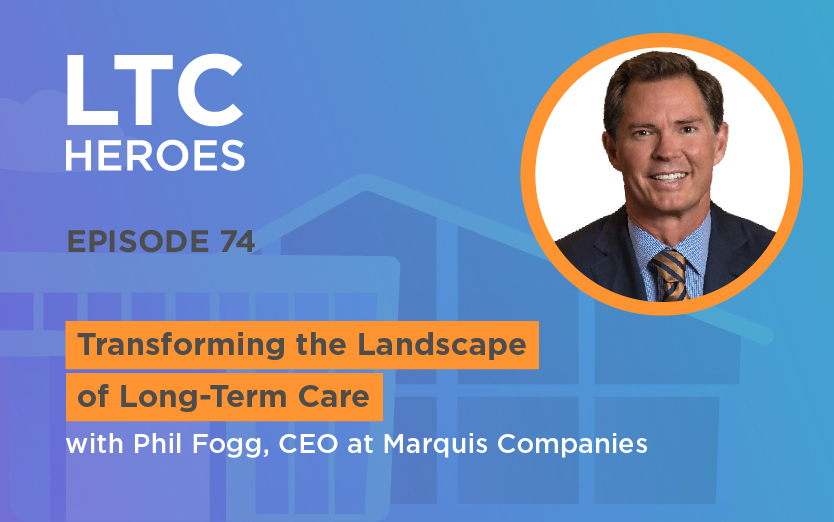In this week’s episode, we speak with Phil Fogg, CEO of Marquis Companies and a board member of the Nebraska Health Care Association, about transforming the landscape of long-term care.
In the episode, we discuss various topics including:
- What Phil has learned about himself over the years.
- Why population health is important and how to organize it into objectives and goals. (Population health refers to the health status and outcomes of a group of people rather than individuals.)
- How data supports Phil and his work and how he successfully manages it.
- How Phil diversifies his work.
- Staffing issues in the long-term care industry.
- Phil’s greatest accomplishments and learning curves in the long-term care industry.
- Phil’s latest innovations in the industry, including revamping population health initiatives and developing a technology platform that enables us to manage our populations.
Tune into the episode below to learn more.
Discover how Phil Fogg, CEO of Marquis Companies, is helping transform and innovate the long-term care industry by tuning into the latest episode of LTC Heroes.
Rapidfire Q/A
What have you learned about long-term care from racing a car?
When I first started racing curves, I’d get all excited. I’d let my emotions carry me in the car.
And then, as I got more and more experienced, I learned the ability to stay calm amid chaos and crisis around me. And the ability to not have everything go perfect.
Rarely in a race does it go the way you think it will. And I think that probably describes long-term and post-acute care perfectly.
How does data support you?
It’s a bit onerous. We’ve got multiple diverse operating systems that we can interface with to get meaningful data.
For us, the most important way to create change is by getting the information to our clinical teams to understand the best practices and change any treatment protocols or models of care.
With the newer emphasis on population health, do you have to hire new people who can interpret it or play with pivot tables differently than most?
I remember in the 90s. I don’t think I hired my first IT person until like 1998. And I think that’s when we rolled out emails. And that was the big innovation that we had.
And now, I have an army of IT people. But what is really starting to grow is the business intelligence team.
It was after the Affordable Care Act was passed and we could see that we’re going to need value-based payment and have to manage those results and outcomes.
Those BI team members now are probably some of my favorite people.
What do you hope to achieve in the next year?
Given the environment we’re in, I want people to know that the American Health Care Association staff and all of its volunteer members are fighting every day to try to affect the things we need. And I think that we’ve got a very tough challenge.
And I would say we’re making some progress but it doesn’t feel like a victory. But I think we’re setting it up to have a better year, next year.
If you have one giant billboard on the outskirts of Portland that hundreds of thousands of people would see, what would it say and why?
It would say that I made a difference in people’s lives, that we care for a population of people in aging decline, and we need to make their life the best that it can be no matter where they are in this process and journey in life.
We appreciate you listening, and we are motivated by your feedback. Visit LTCHeroes.com to learn more about us and head to LTCHeroes.com/community to join our exclusive Facebook Group for Nurses and our exclusive Linkedin group for Long-Term Care Owners. We look forward to seeing you inside the community.
—
Sponsored by Experience.Care
This episode is brought to you by Experience.Care, the only long-term care EHR backed by guarantees.
Your profitability is our priority and your compliance, our cause. Since 1969.
Get your profitability consultation today at Experience.Care/guarantee. Our website is .Care for a reason. We care about your care. Visit us at Experience.Care.

